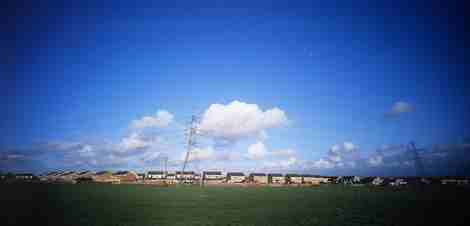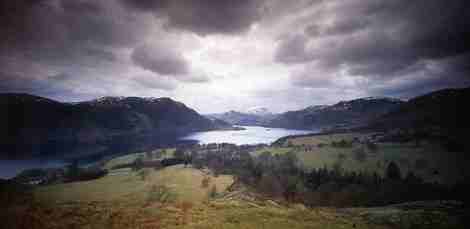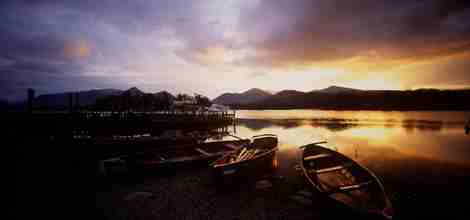 Horseman SW612
Horseman SW612
Panoramic images are undeniably popular with a large number of publishers
and advertising agencies, and demand for images in this format leads inevitably
to a demand for panoramic rollfilm cameras, even though you can cut down
a regular 5 x 4" transparency and get the same final result. Of the
formats available, 6 x 12cm offers a more usable image shape than the extreme
6 x 17cm and 6 x 24cm (112, 168 and 224mm x 56mm respectively).

To handle this and smaller 120 formats, Horseman have introduced their Super
Wide 612. For the first time in a production camera, the 6 x 12 format is
combined with the new 45mm Rodenstock Apo-Grandagon 4.5 lens. With 105°
of view this is roughly the equivalent of a 14mm lens on 35mm format. This
outfit is in fact part of a neat little system; there are two other lens
options, namely a 55mm and a 65mm (still well on the wide side) and there
are two other backs, a 6 x 7 and a 6 x 9.
The first thing that strikes you about the SW612 when you hold it is how
light and compact it is for a camera of this format. Basically, the camera
consists of a large format lens and a roll film back with a viewfinder clipped
to the accessory shoe. There is nothing to stop you using the camera hand-held,
and a large red shutter release button is featured to facilitate firing
the shutter without a cable. Film advance is by two strokes of the advance
lever and you have to remember to press the release lever between each advance.
You can change film backs or lenses during a film by using the darkslide.
It also means you can use the accessory ground glass screen during a film
(optional extra).

I wouldn't find any need to change films mid-roll with 6 x 12 as you only
get 6 frames per roll and I could quite happily use all six on one scene,
but on 6 x 7 I think I would want to have this facility when using more
than one film type. In common with many medium format cameras there is also
no built in metering system. There is no coupled rangefinder. Given the
tremendous depth of field you can acheive with this camera this is hardly
vital. One of the optional extras I didn't have with the test camera was
the ground glass. This can be fitted while the camera back is off to enable
precise focusing, and more importantly to preview the effect of graduated
filters. At £135.00 plus VAT this is one optional extra I would have
to have. Filters have to be used with care!
My Cokin P series holder reduced the 6 x 12 format to 6 x 9 because of vignetting.
On my second and subsiquent trips I secured the filters with a blob of blue
tack on the lens guard. This worked well enough. Another 'optional' extra
which I would have to think of as 'essential' is the centre filter. This
partially cures the illumination fall-off at the corners, which affected
a number of my shots and made some of them look a little on the dark side.
Centre filters cost £108.00 plus VAT. I only had the test camera for
two weeks, and this isn't really long enough with any outfit, let alone
one as unusual as the SW612.

Wide-angle lenses can make exciting pictures, but only if you use them with
care and include forground interest or leading lines. Finding a subject
that suited this ultra wide lens and long thin format proved very difficult.
I think my personal preference would have been for one of the longer lenses.
This was just a feeling which persisted once I had seen the results of my
efforts. When the sun was shining, and that wasn't often, I had a problem
keeping my own shadow out of the picture. The camera is absurdly easy to
use!. There is a spirit level on the top plate and this can be seen through
the viewfinder while you are taking the picture. This again makes hand-holding
a serious option. All the controls are on the lens as you would expect on
a large format. There are no movements on the camera, but with a lens this
wide it is unlikley you would ever need any. If you do tilt the camera the
resulting distortion would have to be described as deliberate creativity.
value for money
The prices from importers Robert White for the complete camera with lens,
excluding VAT, are: SW612 c/w 45mm £2650 SW612 c/w 55mm £2725
SW612 c/w 65mm £2885 Ground glass screen £135 Centre filters £108
The Rodenstock Apo-Rodagon wide angle lenses, in focusing mount, can be
bought for £1095, £1145, or £1289 (ascending focal length)
which makes the price for the body, back and viewfinder a reasonable £1550-1600.
If the convenience of this small lightweight package means a lot to you,
or you have good uses for an ultra-wide lens on panoramic format, then you
will get value for money from this package.
I believe the camera is aimed at people like me, freelance landscape photographers
making a living supplying publishers with images. In my case it has missed
the target. Though less portable and more awkward to use, give me the same
lens on a 5 x 4 with a 6 x 12 back any day - it can also shoot 5 x 4, and
it even works out cheaper. Conclusion This is a very specialised camera
and two weeks isn't really long enough to get to know it well. I would like
to have used the groundglass and centre filter, and these might well have
improved my results and therefore my opinion of the camera. I am sure the
camera is capable of producing some truly stunning images, but I would suggest
hiring it for a while before buying one.
David Tarn
Return to Photon June 96 Content
 Horseman SW612
Horseman SW612 Horseman SW612
Horseman SW612

